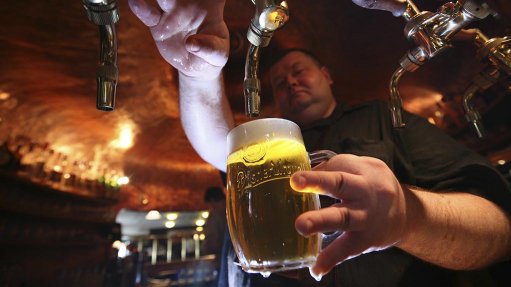
The Beer Association of South Africa (Basa) has again called on Finance Minister Enoch Godongwana to amend the current excise regime governing the alcohol industry, which it says has negatively impacted low alcohol content beverage producers, including beer producers, in South Africa.
The Minister is due to present the National Budget for the new financial year on February 22, and Basa hopes he will announce an alcohol by volume (ABV) excise duty system whereby beverages with a lower alcohol content are taxed at a proportionally lower rate than beverages with a higher alcohol content.
Beer is taxed at an excise duty based on the litres absolute alcohol (LAA), or ABV; however, Basa says despite beer having the lowest ABV among alcoholic products, beer has suffered bias with regard to excise duties, while other products, such as wine, have been advantaged, since wine is taxed at a rate based on litres irrespective of the ABV.
For example, the excise duty liability for wine remains at R4.96 irrespective of the ABV, which ranges between 4.5% and 14%. In contrast, the excise duty liability for beer is based on the ABV calculated at a rate of R121.41 per LAA. Basa explains the disadvantage becomes apparent on beer products above 4.5% ABV, where it is taxed R3.54 more than wine with the same ABV.
Basa has also asked that the excise adjustment approach be changed to one that is fixed, in line with forecasted inflation, thereby creating much-needed tax certainty moving forward.
The association last year also appealed to government to redress the disparities in the application of excise duties within the alcohol industry, which it says have disadvantaged the beer industry in particular, to create a more uniform tax regime within the alcohol industry.
Basa argues that many beer producers are still trying to recover from the Covid-19 national lockdown and four alcohol bans, as well as the prevailing loadshedding.
The association explains that brewers need at least nine hours of uninterrupted electricity supply to brew beer, which means loadshedding above Stage 3 makes it impossible to complete this process.
Power outages also disrupt the delivery of the raw materials needed to produce beer, as well as the packaging and delivery of beer to customers.
Basa says production across the craft beer sector is down by 25% to 40%, while operational costs have increased by 15%.
“It is critical that these craft breweries and other businesses across the beer value chain are provided with a lifeline to protect the thousands of livelihoods they support,” the association asserts.
By implementing these proposals, Basa believes an adjusted excise duty system can ensure increased revenue for government and an alignment with global best practice to reduce harmful alcohol consumption.
The beer industry contributes to about 1.3% of the country’s gross domestic product, and sustains one in every 66 jobs in the country, Basa states, highlighting why it is critical that government enables and encourages the recovery and growth of the industry, instead of “forging on with prejudiced implementation of the regime".